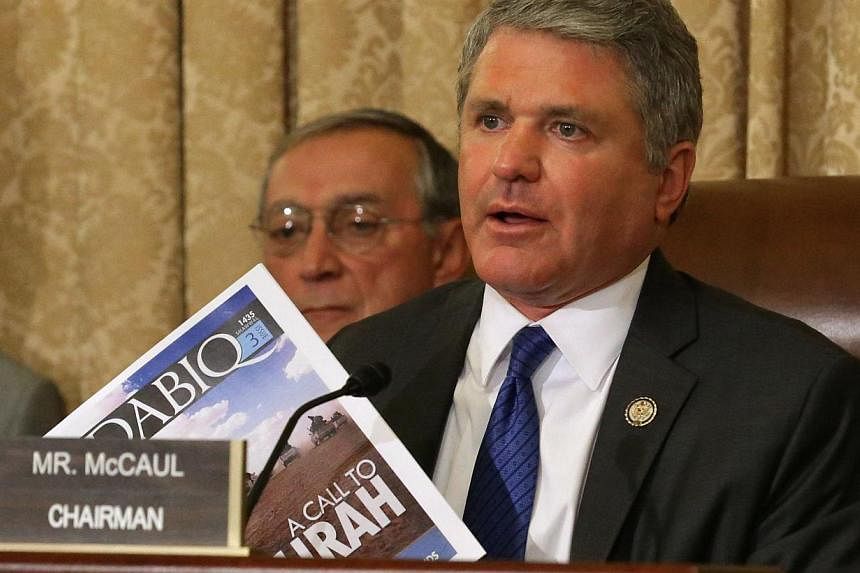WASHINGTON (AFP) - European security shortcomings have created a "jihadi superhighway" allowing countless battle-hardened Islamic extremists to return from Syria, a top US lawmaker warned Wednesday.
"Security gaps in Europe - and Turkey in particular - make it easier for them to return to the West undetected," House Homeland Security Committee chairman Michael McCaul said in an op-ed for Time Magazine.
He pointed to reports that 1,000 fighters monthly, including many westerners, were pouring into the conflict zone to join the Islamic State extremist group.
Many, he said "are only a plane flight away from our shores," with so-called "returnees" armed with training to carry out attacks.
McCaul hit out at "some of our European partners" who "are not moving quickly enough to confront the return of foreign fighters."
"Extremists have already managed to exploit Europe's security gaps and transform it into a jihadi superhighway," he added.
"The inbound lane to Syria is clearly busy, but it is the outbound lane we should be especially worried about."
McCaul heads the panel overseeing protection of the US homeland, and as such is in close contact with US intelligence chiefs.
He singled out Turkey, accusing it of failing to properly police its porous border or to sufficiently screen air passengers against a terror watch list.
"Their recent efforts to enhance border security do not instill confidence that they will be able to stop the foreign fighter flow anytime soon," McCaul said.
Extremists are exploiting "even more vulnerable transit points," he warned, pointing to reports that militant groups have begun to use cruise ships to take advantage of Turkey's lax sea-passenger rules.
"This is a startlingly easy way for fighters to exit the region," McCaul said.
Militants also may be disguising themselves as refugees and joining the thousands of Syrian refugees who have poured into Turkey.
McCaul also pointed the finger at European Union policies, including those that forbid member states from checking EU citizens against terror watch lists when they return to the continent's 26-nation Schengen Area.
"This vulnerability may allow European foreign fighters - many of whom can travel visa-free to the United States - to make it back to the West without drawing attention," McCaul said.
"In all too many ways, Europe is in a pre-9/11 counterterrorism posture," he added.
"Many countries have legal barriers that prevent law enforcement and intelligence agencies from cooperating effectively, (and) EU member states often share information in an ad hoc and decentralised way."

